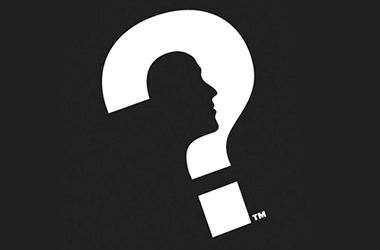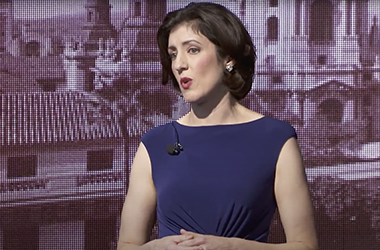Identity Whiplash: An Invisible Epidemic among Mothers and Fathers

 Every day, coast to coast, mothers and fathers suffer from an invisible threat – Identity Whiplash.
Every day, coast to coast, mothers and fathers suffer from an invisible threat – Identity Whiplash.
Let me illustrate. Shortly after my daughter was born, my husband and I went to a college alumni networking event. As we started to mingle, the inevitable question came, “So what are you doing now?” My answer, “Caring for our infant daughter.” From that point on it was as if I disappeared into the floor; no one wanted to talk with me, while everyone chatted happily with my attorney husband. I was stunned, and devastated. I still thought of myself as an intelligent, interesting person, but clearly all of a sudden no one else did.
Or take this scenario. A father friend of mine took his three small children out for coffee one morning, as he wrangled the whirling tutus and the baby on his lap, people gaped. Finally one woman came up to him and said “It’s so AMAZING how you handle all three of them!” He said later it was as if he had one arm and was taking care of three kids, while no one ever stops his wife when she’s out with three kids. While his audience saw him as a freak of nature, he simply thought of himself as a father.
Identity Whiplash happens when mothers and fathers crash into outdated assumptions others have about us that conflict with how we think of ourselves, leaving us dazed, confused and even questioning our identity and our decisions. These outdated stereotypes include things like:
- “Mothers are naturally better at and responsible for caring for family.”
- “Mothers who aren’t employed are dull, watching soap operas and eating bon bons all day.”
- “Fathers are clueless when it comes to caring for family.”
- “Mothers who are employed are selfish and neglect their kids.”
So for example, when a father gets asked if he is “babysitting” his own children, Identity Whiplash. When an employed mother hears, “Why would a woman have children if she isn’t going to raise them herself?” Identity Whiplash. Since our identities depend so much on how others and the world around us responds to us, these experiences are not trivial. They make it difficult for mothers and fathers to craft lives that fit and then feel comfortable in them.
To help you ward off Identity Whiplash, here are a few tools from my book, This is Not How I Thought It Would Be: Remodeling Motherhood to Get the Lives We Want Today.
-
Check your own assumptions with this online quiz.
Visit Harvard’s Demo project on implicit bias (a fancy term for subconscious stereotypes) and take the ten minute Gender-Career test which reveals the associations most of us have between family and females and between career and males. Send the link to friends and family.
-
Surround yourself with mothers and fathers of all types.
We can’t think our way out of these stereotypes, we have to act our way out of them. One of the best ways is to expose yourself to people that don’t fit the stereotype. So while we tend to gravitate toward people who are like us (for example other mothers who are employed), in this case it is important to make an effort to hang out with mothers and fathers who are different. That way, those people will challenge your own stereotypes and you will help challenge theirs. You can also become a mother myth-buster or a father myth-buster by simply making a point of bucking the stereotypes at every opportunity. For example, I always made it a point to mention my toddler when I worked with executives in order to challenge their assumptions about mothers.
-
Decide on a standard response to common Identity Whiplash incidents in your life.
Which types of Identity Whiplash do you encounter most often? Write down a standard response so that when you have an emotional reaction to the situation, you don’t have to think, you already know what to say. Some examples might be:
“Actually, he’s not ‘babysitting,’ he’s parenting.”
“In my experience, mothers who are employed are still very much involved in raising their children. I know I am.”
“Thank you, but I’m not really doing anything special, simply being a father.”
“I’m not employed right now, but I’m working my tail off for my family and I’m the same interesting person I’ve always been.”
I’d love to hear your Identity Whiplash stories and your responses so I can share them with other mothers and fathers. Comment here or send them to me through the Contact page!




[…] For more on these stereotypes, check out Identity Whiplash: An Invisible Epidemic Among Mothers and Fathers and this Quiz to match real quotes to stereotypes about mothers and […]